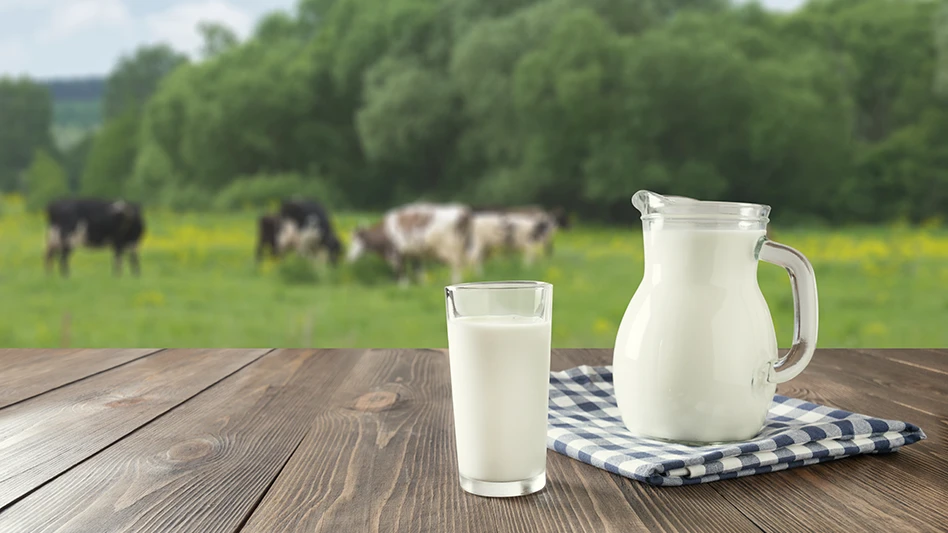
Adobe Stock | svetlana_cherruty
The Michigan Department of Health and Human Services (MDHHS) announced the first case of influenza A (H5N1) virus, also known as avian influenza, identified in a Michigan farmworker who had regular exposure to livestock infected with the disease. This follows extensive public heath actions over the course of the last few months by the state of Michigan to allow farmworkers to monitor and notify local public health officials should they have symptoms.
According to the Centers for Disease Control (CDC), the risk to the public remains low; the Michigan farmworker diagnosed with influenza A had mild symptoms and has recovered. To protect farm and farmworker privacy, additional details are not being provided.
The virus has been circulating in dairy and poultry farms across the U.S. this spring, and state and local public health officials have been closely monitoring for human cases, which can occur sporadically in individuals with close contact to ill animals. This virus has been associated with the ongoing multistate outbreak of influenza A. As such, it is not unexpected that comprehensive testing identified a human infection. Information to date suggests this is a sporadic infection, with no associated ongoing spread person-to-person.
To date, H5N1 has been confirmed positive in approximately 52 dairy herds in 9 states, including Michigan. The International Dairy Foods Association has additional resources related to H5N1 available here.
“Michigan has led a swift public health response, and we have been tracking this situation closely since influenza A (H5N1) was detected in poultry and dairy herds in Michigan. Farmworkers who have been exposed to impacted animals have been asked to report even mild symptoms, and testing for the virus has been made available,” said Dr. Natasha Bagdasarian, chief medical executive. “The current health risk to the general public remains low. This virus is being closely monitored, and we have not seen signs of sustained human-to-human transmission at this point. This is exactly how public health is meant to work, in early detection and monitoring of new and emerging illnesses.”
MDHHS and local health departments continue to work closely with the Michigan Department of Agriculture and Rural Development (MDARD), farms and workers to conduct monitoring of the health of people exposed to ill animals.
“Since the first detection of influenza A (H5N1) in dairy cattle on March 29, Michigan has prioritized both the animal and human health aspects of this disease outbreak,” said MDARD Director Tim Boring. “Today’s news underscores the continued importance of limiting nonessential farm visits, including farm tours and field trips, as well as the use of personal protective equipment when working with livestock.”
MDARD said it continues to implement a proactive, science-based approach to mitigating the spread of influenza A. Michigan's response to influenza A has been a one-health approach, working with federal, state and local partners to address animal and public health concerns rapidly. Three U.S. Department of Agriculture (USDA) emergency management teams have been on the ground assisting MDARD in day-to-day responses at all impacted poultry facilities statewide. An epidemiological team from USDA is also deployed to further assist in tracing and testing within dairy herds to be able to provide real-time information.
Boring has taken proactive actions by signing an "Determination of Extraordinary Emergency" order on May 1, which further protects Michigan's poultry and livestock industries from the ongoing threat of influenza A. Michigan's order enhances USDA's federal order, which was issued April 24.
MDARD has identified both dairy and poultry farms that have tested positive for influenza A in several Michigan counties. Risk is not limited to those geographies as additional detections may be possible.
MDHHS recommends seasonal flu vaccination for people working on poultry or dairy farms. It will not prevent infection with avian influenza viruses, but it can reduce the risk of coinfection with avian and flu viruses.
Since 2022, there have been two previous human cases related to bird and dairy exposure in the U.S., one in Colorado in 2022 and one in Texas in 2024.
For more information, visit Michigan.gov/InfluenzaA.
Latest from Quality Assurance & Food Safety
- Chef Robotics Introduces Pat-Down Capability for Meal Presentation and Sealing
- USDA Launches Regenerative Pilot Program
- Indoor Ag-Con Adds Food Safety Track to Conference Lineup
- IDFA Recognizes Federal Officials for Support of U.S. Dairy Industry
- Tetra Pak Acquires Bioreactors.net
- Fresh Del Monte Receives Rabobank Leadership Award
- São Paulo Earns Guinness World Record for Largest Municipal Food Security Program
- KPM Analytics Releases Ready-to-Use NIR Calibration Packages





